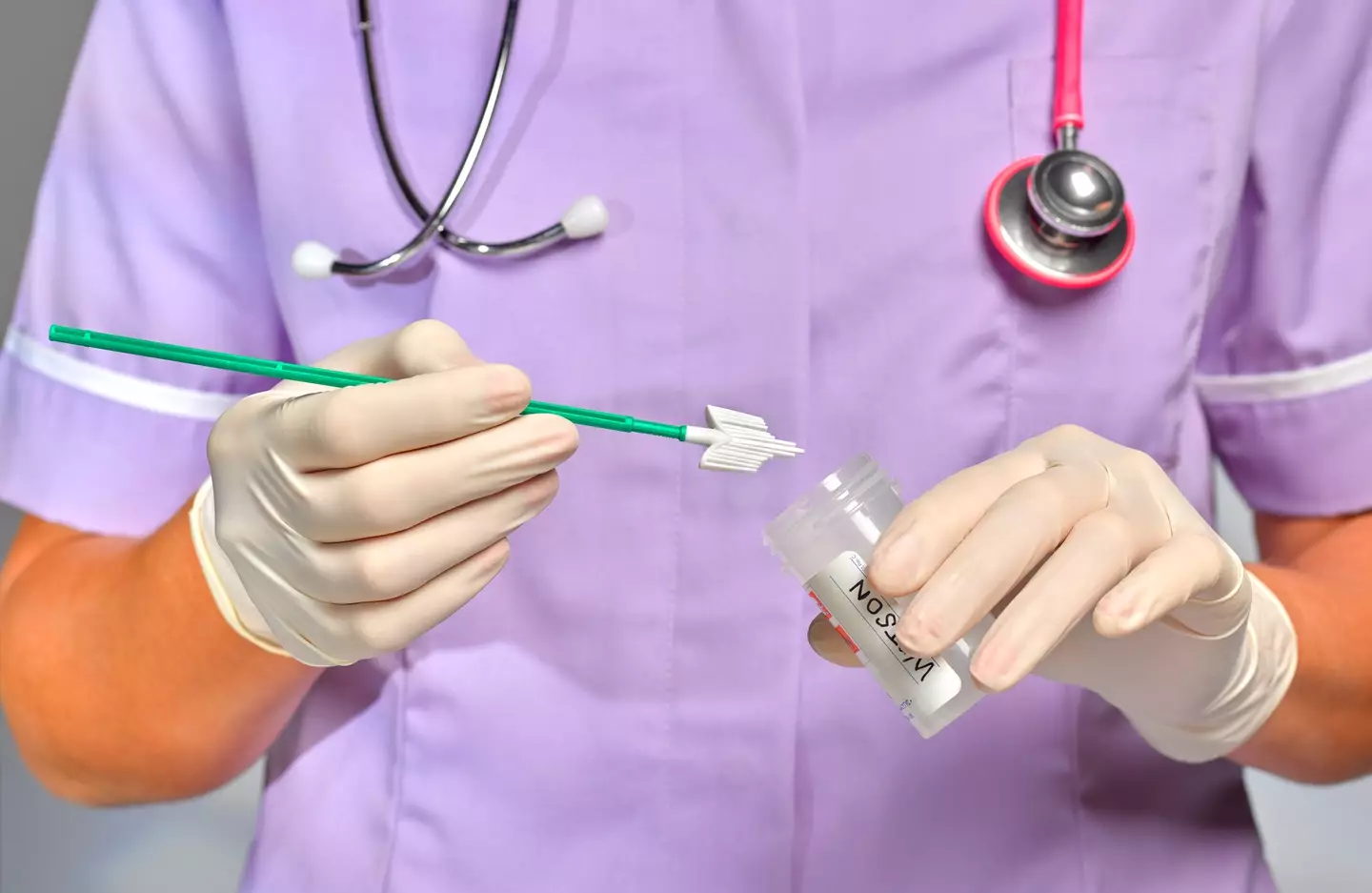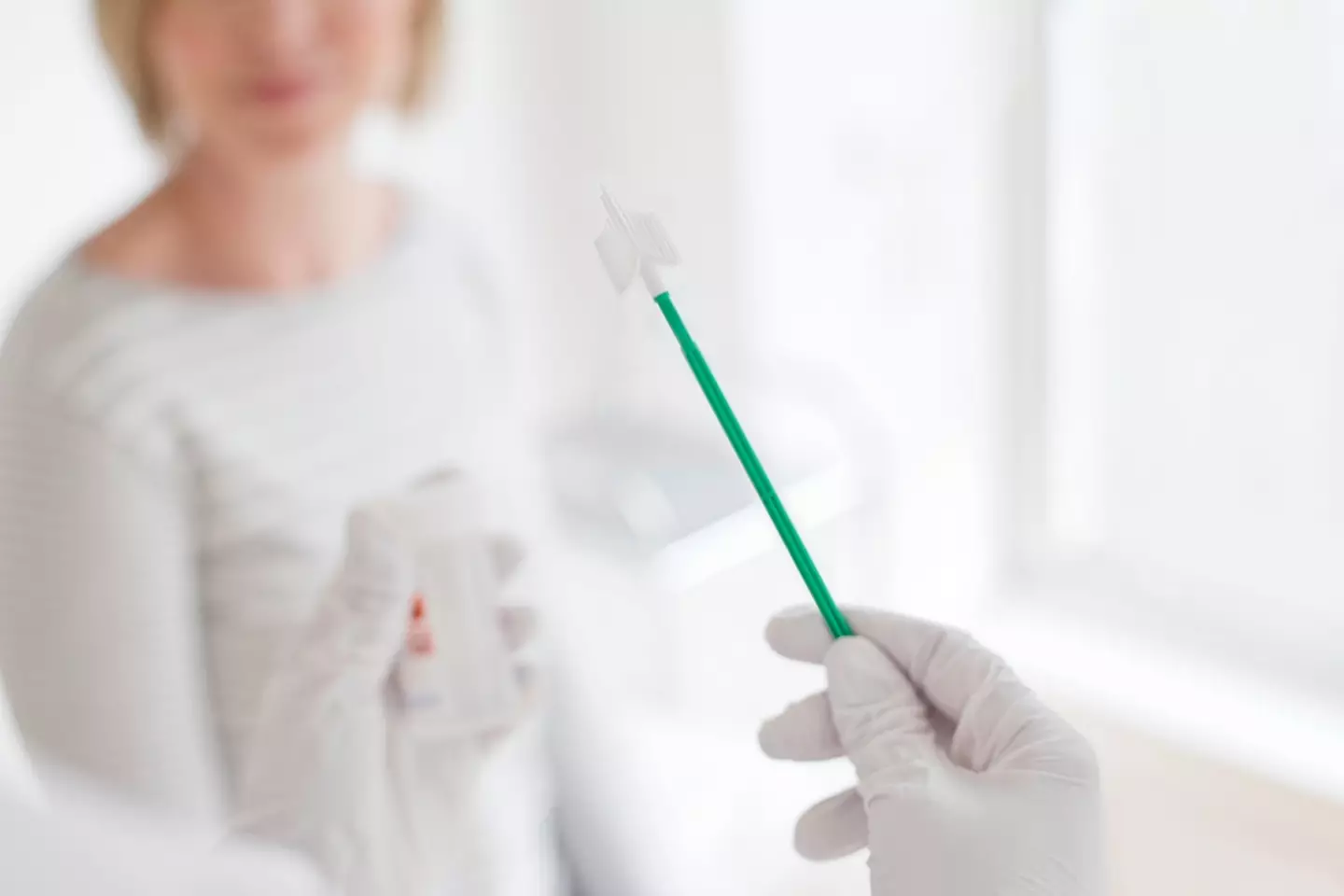
Every single day in the UK, two women lose their lives to cervical cancer and nine more receive a life-changing diagnosis.
Cervical Cancer Prevention Week has just started today (22 January) and, to kick the week off, one health expert has answered five common questions about cervical cancer screening and prevention.
Dr Radhika Vohra, GP at Spire Gatwick Park Hospital has opened up about the signs of cervical cancer, the importance of smear tests and explained a little more about the HPV vaccine.

What are the signs of cervical cancer?
Dr Vohra explains that the common signs of cervical cancer are heavier periods, changes in your vaginal discharge and unusual vaginal bleeding, such as bleeding in between your periods, during or after sex, or after menopause.
Advert
She also notes that other common symptoms include pain during sex and pain in your pelvic, lower back and/or abdominal areas.
Can I have sex before a smear test?
The GP advises totally avoiding vaginal sex for 24 hours before your smear test.
"This is because sex can affect the cells that line your cervix (opening of your womb), which are collected during your test. This may interfere with your smear test results," says Dr Vohra.

What does a smear test show?
In the UK, it's free to have a smear test if you are a woman aged between 25 and 64, and according to Cancer Research UK, having a smear test saves around 5,000 lives each year.
Advert
Now, a smear test - which is also known as cervical screening - is used to help prevent cervical cancer by checking the health of your cervix (the entrance to your womb).
It checks whether your cervix is infected with HPV to screen for changes early.
If HPV is detected, the cells collected during your test will be examined under a microscope to check for any unusual changes in their appearance, the doctor notes.
If abnormal changes are detected, further investigation will be recommended as you may need treatment to remove these cells.

What are the main HPV symptoms?
In the majority of cases, Dr Vohra explains, HPV doesn’t cause any symptoms, so you may be infected but not realise it. However, sometimes HPV can cause genital warts which are small, non-cancerous lumps in or around your vagina, penis and/or anus.
Advert
Although usually painless, genital warts can become irritated and inflamed, resulting in soreness.
HPV can also cause cancer, so it's super important to attend your smear test.
Why should I have the HPV vaccine?
The HPV vaccine protects you against specific types of cancer, which are caused by infection with HPV.
Advert
Dr Vohra explains that this includes certain types of mouth, throat, anal and genital cancers, and in women, cervical cancer.
The HPV vaccine also protects you against genital warts.
You can find out more information about cervical cancer on the NHS website here.
If you’ve been affected by any of these issues and want to speak to someone in confidence, contact Macmillan’s Cancer Support Line on 0808 808 00 00, 8am–8pm seven days a week
Featured Image Credit: Science Photo Library/Dougal Waters/Getty ImagesTopics: Health, Life, News, UK News, NHS, Sex and Relationships
